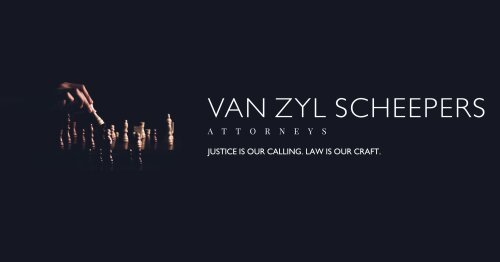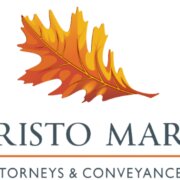Best Conveyancing Lawyers in Stellenbosch
Share your needs with us, get contacted by law firms.
Free. Takes 2 min.
Free Guide to Hiring a Real Estate Lawyer
List of the best lawyers in Stellenbosch, South Africa
About Conveyancing Law in Stellenbosch, South Africa
Conveyancing is the legal process of transferring property ownership from one person or entity to another. In Stellenbosch, South Africa, conveyancing plays a crucial role in ensuring proper and lawful property transactions, whether you are buying, selling, or mortgaging property. This process involves the preparation, verification, and registration of property documents and is regulated by South African property and land registration laws. Only qualified conveyancers, who are attorneys specializing in this area of law, are permitted to handle these transactions. Stellenbosch, known for its vibrant property market and unique cultural heritage, requires that all conveyancing abide by both national and local regulations.
Why You May Need a Lawyer
There are several common scenarios where individuals or businesses in Stellenbosch would require the assistance of a conveyancing attorney:
- Buying or selling residential or commercial property
- Transferring property ownership due to inheritance, divorce, or donations
- Registering mortgage bonds or canceling existing bonds
- Ensuring compliance with zoning laws and municipal by-laws
- Dealing with disputed property boundaries or rights-of-way
- Restructuring property ownership, such as creating or dissolving joint ownership
- Drafting and reviewing sale agreements and property transfer documents
Local Laws Overview
Conveyancing in Stellenbosch is governed primarily by South African national legislation, such as the Deeds Registries Act, the Sectional Titles Act, and the Transfer Duty Act. However, local requirements from the Stellenbosch Municipality and Western Cape Province play a significant role. Key aspects include:
- Property ownership records must be updated through the Deeds Office in Cape Town, which serves Stellenbosch
- Transfer duty tax payments are required for most property transfers, managed through the South African Revenue Service
- Municipal rates clearance certificates from Stellenbosch Municipality are obligatory before any property registration can be finalized
- Zoning and land use planning are controlled by municipal by-laws and the Land Use Planning Ordinance
- Special attention is paid to properties within historical or agricultural zones common in Stellenbosch
A qualified conveyancer will ensure compliance with all these laws and procedures, reducing risk for their clients.
Frequently Asked Questions
What does a conveyancer do during a property transaction?
A conveyancer manages the entire legal process of transferring property ownership. This includes drafting and reviewing documents, conducting property searches, ensuring compliance with legal requirements, lodging documents with the Deeds Office, and overseeing financial settlements.
How long does the conveyancing process take in Stellenbosch?
Typically, the process can take between 6 and 12 weeks, depending on the complexity of the transaction, promptness of parties involved, and receipt of necessary clearances and documentation.
What are the costs involved in conveyancing?
Costs generally include conveyancer fees, transfer duty or VAT, Deeds Office fees, municipal rates clearance fees, and other administrative costs. A conveyancer can provide a detailed breakdown before you commit.
What documents are needed to buy or sell property?
You will need valid identification, proof of address, sale agreement, clearance certificates, bond approval (if applicable), and tax numbers. Additional information may be requested depending on your circumstances.
Is it mandatory to use a lawyer for property transfers?
Yes, only qualified attorneys with a conveyancing qualification are permitted to perform property transfers and related registrations in South Africa.
What is a municipal rates clearance certificate?
It is a document issued by the Stellenbosch Municipality confirming that all municipal taxes, rates, and service charges have been settled by the seller before registration of the transfer can take place.
Who is responsible for paying the conveyancer’s fees?
In most cases, the purchaser of a property pays the conveyancer’s fees, unless otherwise stipulated in the sale agreement.
Can foreigners buy property in Stellenbosch?
Yes, both residents and non-residents can purchase property in Stellenbosch, but there may be additional documentation and compliance requirements for non-residents.
What are the risks of not using a qualified conveyancer?
Not using a qualified conveyancer can result in invalid transfers, financial loss, delays, legal disputes, and difficulty obtaining finance or insurance.
What is the Deeds Office, and why is it important?
The Deeds Office is a government entity where all property transfers are registered. Registration at the Deeds Office is essential for legal recognition of property rights and protection against third party claims.
Additional Resources
For further information or support regarding conveyancing and property law in Stellenbosch, consider these resources:
- Stellenbosch Municipality - Property and Rates Department
- South African Deeds Office (Cape Town)
- Law Society of South Africa
- South African Revenue Service (SARS) - Transfer Duty Section
- Western Cape Department of Human Settlements
- Legal Aid South Africa
Next Steps
If you need legal assistance with any conveyancing matters in Stellenbosch, take these steps:
- Consult with a qualified conveyancer or property law attorney in Stellenbosch to discuss your needs
- Gather all relevant documentation, such as identification, sale agreements, and municipal accounts
- Request a written quote for conveyancing costs and obtain a clear outline of the process involved
- Ensure you understand your legal obligations, including tax and municipal requirements
- Ask for a realistic timeline and regular updates from your attorney
Lawzana helps you find the best lawyers and law firms in Stellenbosch through a curated and pre-screened list of qualified legal professionals. Our platform offers rankings and detailed profiles of attorneys and law firms, allowing you to compare based on practice areas, including Conveyancing, experience, and client feedback.
Each profile includes a description of the firm's areas of practice, client reviews, team members and partners, year of establishment, spoken languages, office locations, contact information, social media presence, and any published articles or resources. Most firms on our platform speak English and are experienced in both local and international legal matters.
Get a quote from top-rated law firms in Stellenbosch, South Africa — quickly, securely, and without unnecessary hassle.
Disclaimer:
The information provided on this page is for general informational purposes only and does not constitute legal advice. While we strive to ensure the accuracy and relevance of the content, legal information may change over time, and interpretations of the law can vary. You should always consult with a qualified legal professional for advice specific to your situation.
We disclaim all liability for actions taken or not taken based on the content of this page. If you believe any information is incorrect or outdated, please contact us, and we will review and update it where appropriate.












